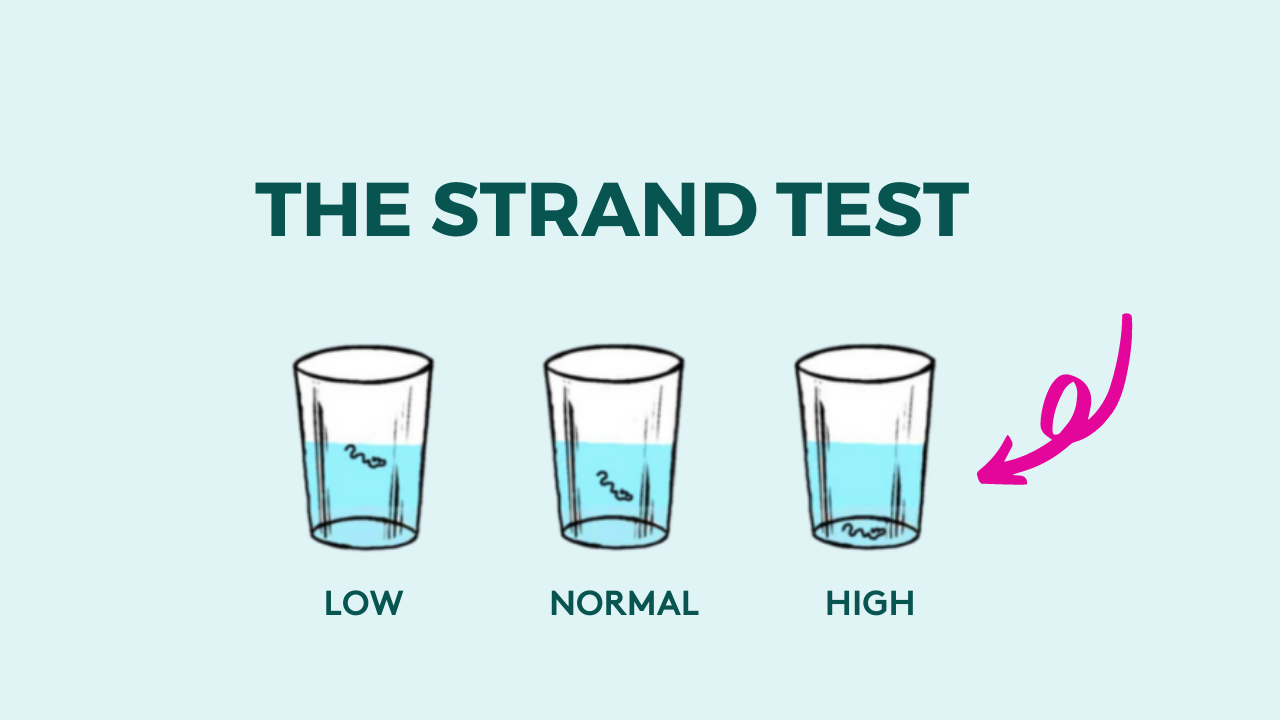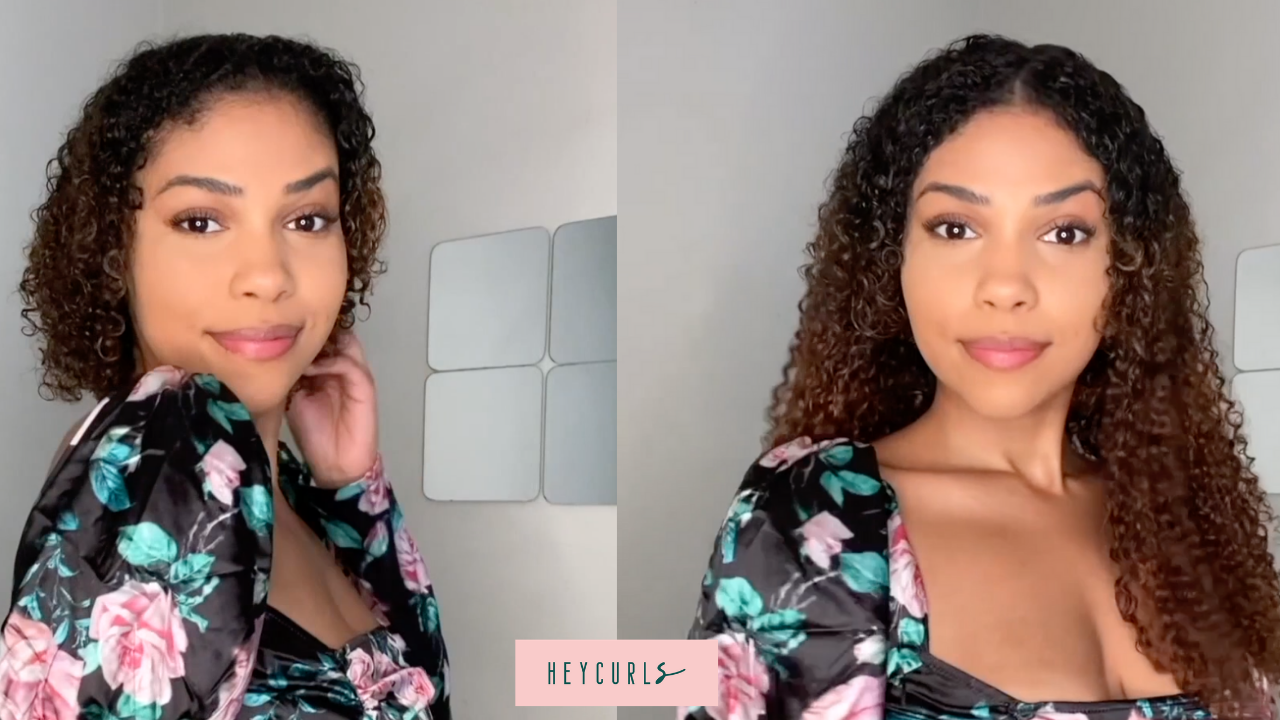You might have heard the term “porosity” floating around in the natural hair community. Do you know what it actually means? Porosity, as it relates to hair, refers to how easily hair absorbs and retains moisture. Your hair either has normal porosity, low porosity or high porosity. Knowing what porosity your hair is can make a huge difference in how you care for it. For instance, you’ll be able to use products and techniques that are best for your hair’s porosity. In this article, we’ll be telling you everything you need to know about high porosity hair.
What is High Porosity Hair?
High porosity hair is hair that attracts and loses moisture easily. If you have high porosity hair, it means that water, oils, and other types of products can be easily absorbed by your hair, but because your hair is highly porous, it may not be able to retain moisture as well as other types of hair.
The reason high porosity hair behaves that way has to do with the structure of the hair strand. When the cuticles, which are the outermost layer of the hair, are too far apart, your hair is highly porous.
High hair porosity may be due to genes or specific hair treatments. Processing your hair or styling your hair like straightening, blow-drying, bleaching or using other chemical applications can all lead to high porosity hair.
Characteristics of High Porosity Hair
High porosity hair has specific characteristics such as :
- Tangles easily
- Dull hair strands that lacks shine
- Air dries quickly*
- Gets wet quickly
- Frizzy
- Looks and feels dry
- Prone to breakage
- Absorbs products quickly.
*There are conflicting views on how high porosity hair dries. Many sources say that hair that dries quickly is a sign of high porosity, however, some sources say the exact opposite. One way to be sure of your hair porosity is by doing a strand test.
How To Tell If You Have High Porosity Hair
The most popular way to confirm if you have high porosity hair is to do a strand test on clean hair. All you have to do is take a strand of your hair and drop it in a glass of water. If your hair sinks very quickly to the bottom, you have high porosity hair. If your hair sinks to the middle of the cup and then gradually descends to the bottom, you have normal porosity hair. However, if your hair floats in the glass for a lengthy period of time before sinking, you probably have low porosity hair.

How To Care For High Porosity Hair
If you’ve been wondering how to grow your high porosity hair or fix it, then the best thing you can do is learn how to care for it.
Pre-Pooing and Detangling
If you have high porosity hair, pre-pooing and finger detangling are your best friends. High porosity hair strands have an open hair shaft and tangle quickly. To prevent your hair knotting up and breaking when it comes in contact with water, make sure that your hair is fully detangled before you step into the shower. You can use one of your favourite oils or conditioners to help give you a hand.
The LCO Method
Using liquid or leave-in conditioner, cream and oil (LCO) in that order, is the best way to apply products to high porosity hair. Angela Stevens, celebrity hairstylist said about this:
"Oils are the best way to lock moisture into your hair. Argan oil, jojoba oil, and other oil blends help to seal moisture."
Protein Treatments
Protein treatments are also important to add to your routine, when you have highly porous hair. As high porosity hair is fragile and subject to breakage, incorporating protein will help to fortify it.
This is what natural hair blogger Madisen had to say about it:
"High porosity hair has many gaps in the hair shaft because the cuticles are raised. Adding protein will reduce breakage, make your hair thicker and improve the elasticity of your hair."
We recommend frequently using a protein conditioner or a protein mask, like once a week or once every two weeks. Look for conditioners with keratin, wheat, or silk protein. You can also use eggs to make a DIY mask. The high amount of protein found in eggs will give extra love and strength to your strands.
Using the Right Products
Not all products work well for high porosity hair, so you have to be picky. It’s best to avoid hair products that have sulfates, parabens, silicones, and sodium laureth sulfates. Products with those types of chemicals are a big NO NO as they pull essential moisture from your hair.
For starters, think carefully about the shampoo you use for your hair. Most shampoos are too clarifying and will leave your hair dry and stripped. Pick a shampoo that is hydrating and nourishing. You can also go for a gentle apple cider vinegar rinse, if that is your thing.
Washing your hair with clay is another delicate way to clean high porosity hair. Clay pulls dirt and build-up from your scalp like a magnet, but at the same time really nourishes your hair and defines your curls.
In terms of styling, you should opt for cream or oil-based products, instead of the ones that are water or gel-based to retain moisture. Layering both creams and oils gives your hair not only the moisture it needs, but also seals it in. Oil by itself does too little to give your hair the hydration it so much desires.
Since using heat is pretty much detrimental to your hair, always use heat protectors to protect your hair when heat styling your tresses.
Protective Styling
Protective styling is a great way to not have to constantly manipulate your hair and thus allowing your hair to grow. Since high porosity hair is prone to breakage, using protective styling can prevent this for you. Protective styling involves braiding your hair, wearing wigs or adding hair extensions to your hair. Anything that reduces constant manipulation of your hair is basically protective styling. Natural hair clip-ins, for example, help you to have fuller, longer hair without much manipulation. All you have to do is clip the hair in and you’re done.

Other Tips
Other helpful tips are:
- Avoid hot water when washing your hair and opt for warm water instead to protect your cuticle.
- Ditch the towel for a cotton t-shirt when drying your hair to reduce breakage.
- Detangle your hair gently. Don’t detangle dry hair and use proper tools to do so. You can also use a detangler for good slip.
- Use less heat and if you have to use heat use a heat protectant.
- Watch natural hair YouTubers with high porosity hair for other tips and tricks.
Conclusion
Having high porosity hair does not have to stop you from having beautiful healthy hair. Knowing your porosity means you have won half the battle. The next step is learning what products work best for your hair and learning how to care for your hair.
RELATED: The Great Debate: The LOC method vs. the LCO method







